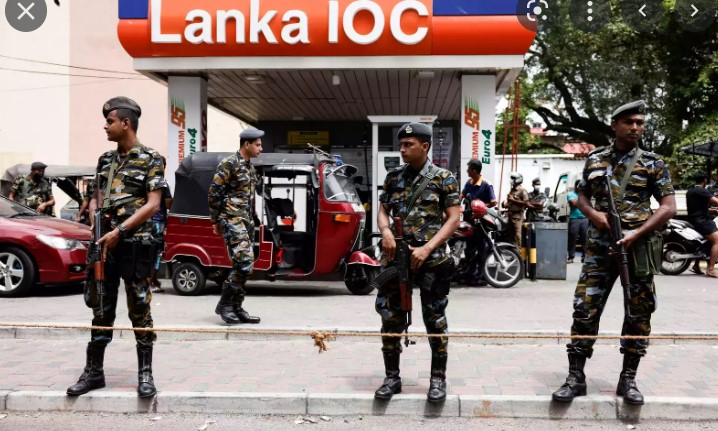Virendra Pandit
New Delhi: With suppliers hesitant to provide oil and gas without pre-payment, some of the South Asian countries—Sri Lanka, Pakistan, and Bangladesh—may witness a worsening energy crisis in the coming months, whose ripple effect may adversely further imperil their fledgling economies.
Already, an unprecedented energy crisis has gripped some of South Asia’s densely populated and impoverished parts as fuel suppliers are avoiding selling oil to these nations.
According to the media reports, Pakistan may soon face a Sri Lanka-like energy crisis as some companies are unwilling to sell fuel to the state-owned Pakistan State Oil Company. Some banks have also stopped financing and facilitating payments for Islamabad’s energy imports.
Cash crisis-ridden Sri Lanka, which had received nearly USD 4 billion worth of help from India this year, is also struggling to secure fuel from its next-door neighbor, a regular supplier.
Likewise, Bangladesh, seeking a loan from the International Monetary Fund (IMF), is scheduling power cuts to preserve its fuel reserves.
The crisis in South Asia, as elsewhere, unfolded in March, a week after Russia invaded its neighbor, Ukraine. Since then, emerging markets worldwide are facing a rise in commodity prices, despite crude prices coming down on fears over a global economic slowdown.
The reason is these countries’ plummeting currencies across South Asia, which has made imports expensive. Fuel shortage is pushing these countries to the brink of collapse when affordable energy is crucial in supporting their rebound from the crippling effects of the pandemic from which they had just started climbing out when Russia invaded Ukraine.
Soaring global energy prices intensified the economic crises that hit some emerging markets, especially nations that highly depend on energy imports but had very low foreign exchange reserves, an expert said, adding. Sri Lanka’s economic situation became desperate, and Pakistan’s condition turned extremely fragile.
As a bankrupt Sri Lanka struggles to secure fuel and control inflation, India is seeking upfront payment for oil as credit lines have exhausted. Following this, other potential sellers also became cautious about providing oil on credit to the island country.
The financial situation in Pakistan, which is facing a current account deficit (CAD) of nearly USD 18 billion, is so unstable that, despite an agreement with the IMF to approve an extended funding facility. fuel traders are avoiding supplying gasoline and fuel oil on concerns the recent dramatic plunge in the rupee could hamper Islamabad’s ability to make payments.
For example, unlike eight companies taking part in gasoline tenders in May, only one firm offered to sell energy to Pakistan in July.
Pakistan’s energy imports dipped 15 percent in July compared to June, and its attempts to import liquefied natural gas (LPG) received little response.
Apart from banks curtailing financing of Pakistan’s energy imports, some charge higher rates as a risk premium, adding to costs and administrative hurdles to buying oil.
Today, Pakistan is heavily burdened with the rising cost of energy. In June alone, prices zoomed almost 150 percent year-on-year and contributed to about half of the country’s overall USD 7.9 billion imports, the Pakistan Bureau of Statistics informed.
This is also taking a toll on its power sector, as a fourth of Pakistan’s power-generation capacity has been shut because of natural gas, fuel oil, and coal shortages. The energy payments and dwindling foreign exchange reserves propelled the Pakistani rupee last week to its worst weekly decline since 1998. On Thursday, a US dollar was equal to 238 Pakistani rupees.
Reports from Dhaka said Bangladesh has also ordered an operational halt at diesel-fed power plants. The densely populated country, with only a month of diesel reserves, started scheduled power cuts to preserve its dwindling energy resources to reduce the impact of costly fuel imports, Bangladesh Petroleum Corp sources informed.

